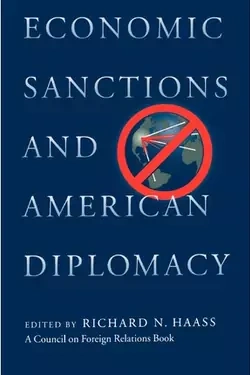
Economic Sanctions and American Diplomacy

- Book
- Foreign policy analyses written by CFR fellows and published by the trade presses, academic presses, or the Council on Foreign Relations Press.
Read an excerpt of Economic Sanctions and American Diplomacy.
"Sanctions don't work" is an often-heard refrain. The reality, though, is more complex. Sanctions—mostly economic but also political and military penalties aimed at states or other entities to alter political and/or military behavior—almost always have consequences, sometimes desirable, at other times unwanted and unexpected. What cannot be disputed, though, is that economic sanctions are fast becoming the policy tool of choice for the United States in the post-Cold War world. Indeed, economic sanctions are increasingly at the center of American foreign policy as a policy tool to resolve several issues: to stem the proliferation of weapons of mass destruction, promote human rights, discourage aggression, protect the environment, or thwart drug trafficking.
More on:
Drawing heavily on eight case studies—Iraq, Iran, the former Yugoslavia, Haiti, Pakistan, China, Libya, and Cuba—this book presents lessons to be learned from recent American use of economic sanctions. It also provides specific guidelines designed to shape future decisions by Congress and the executive branch.
A Council on Foreign Relations Book
More on:
 Online Store
Online Store